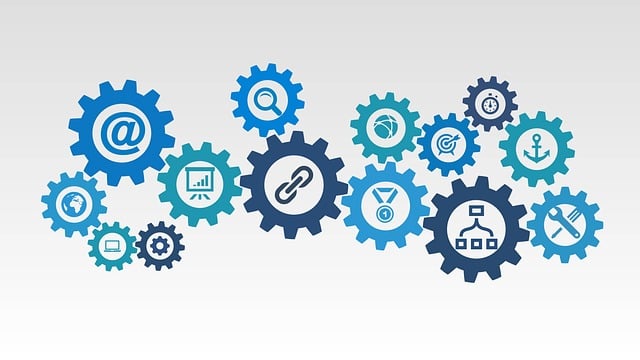AI business automation is transforming automotive repair shops by leveraging machine learning and natural language processing to predict equipment failures, enhance diagnostic accuracy, and reduce downtime. It automates administrative tasks, freeing human resources for complex repairs, improving productivity, and offering faster turnarounds, accurate billing, and enhanced customer satisfaction. Successful integration requires overcoming workforce resistance, ensuring data privacy, setting clear objectives, selecting suitable tools, and collaborating with technology partners. Future advancements promise to revolutionize diagnostics, predictive maintenance, and customer service, further boosting efficiency and the customer experience in AI business automation for repair shops.
“In the rapidly evolving automotive landscape, Artificial Intelligence (AI) is no longer a futuristic concept but an essential tool. This article explores how AI business automation can revolutionize traditional repair shops, enhancing efficiency and customer satisfaction. We delve into the transformative power of AI in automotive repair, highlighting its benefits, from streamlining operations to delivering exceptional experiences.
Furthermore, we provide practical strategies for seamless AI integration, addressing challenges and offering best practices for businesses aiming to stay ahead in an era defined by AI consulting.”
- Understanding AI's Role in Automotive Repair: How AI Business Automation Can Transform Traditional Repair Shops
- Benefits of Implementing AI Technologies: Streamlining Operations and Enhancing Customer Experience
- Strategies for Effective AI Integration: Challenges, Best Practices, and Future Prospects for Automotive Businesses
Understanding AI's Role in Automotive Repair: How AI Business Automation Can Transform Traditional Repair Shops

In the realm of automotive repair, Artificial Intelligence (AI) is no longer a futuristic concept but a game-changer that’s transforming traditional repair shops into efficient, modern workshops. AI business automation for repair shops involves leveraging machine learning algorithms and natural language processing to streamline various processes. For instance, AI can analyze historical data to predict equipment failures, enabling proactive maintenance and reducing downtime. By understanding patterns in vehicle issues and service trends, AI systems can provide valuable insights that enhance diagnostic accuracy and efficiency.
Moreover, AI automation can handle administrative tasks, from scheduling appointments to managing inventory. This frees up human resources to focus on more complex repairs and customer interactions, improving overall shop productivity. With AI business automation, repair shops can offer faster turnarounds, accurate billing, and enhanced customer satisfaction, setting them apart in a competitive market.
Benefits of Implementing AI Technologies: Streamlining Operations and Enhancing Customer Experience

Implementing AI technologies offers automotive businesses, particularly repair shops, a double-pronged advantage: streamlined operations and enhanced customer experience. AI business automation can optimize various processes, from scheduling appointments to inventory management, reducing human error and increasing efficiency. By automating repetitive tasks, staff can focus on more complex and value-added work, leading to improved productivity and cost savings.
Moreover, AI enhances the customer journey by providing personalized experiences. Through data analysis, AI algorithms can predict maintenance needs based on vehicle history, offering proactive services that keep customers safe and satisfied. Real-time diagnostics powered by AI also enable faster problem identification, cutting down service times and ensuring quicker vehicle turnaround, a significant benefit for both businesses and their clients.
Strategies for Effective AI Integration: Challenges, Best Practices, and Future Prospects for Automotive Businesses

The successful integration of AI in automotive businesses, especially repair shops, involves navigating several challenges. One key hurdle is the adoption of new technologies by workforce members who may be resistant to change or lack the necessary digital literacy skills. To overcome this, automotive businesses must invest in comprehensive training programs and foster a culture that embraces innovation. Additionally, ensuring data privacy and security is paramount when implementing AI business automation for repair shops, as sensitive vehicle and customer information must be protected.
Best practices for effective AI integration include starting with clear objectives, selecting the right tools based on specific needs, and integrating AI solutions seamlessly into existing workflows. Collaborating closely with technology partners who have a proven track record in the automotive industry can help automotive businesses avoid common pitfalls. Looking ahead, future prospects for AI in the automotive sector are promising, with advancements in machine learning and natural language processing poised to enhance diagnostics, predictive maintenance, and customer service. These innovations will not only improve operational efficiency but also elevate the overall customer experience.
AI business automation has the potential to revolutionize automotive repair shops by streamlining operations and enhancing customer experiences. By implementing AI technologies, businesses can overcome traditional challenges, improve efficiency, and stay ahead in a competitive market. Effective integration strategies, coupled with best practices, will be key to unlocking these benefits and ensuring a successful transformation for automotive enterprises adopting AI consulting services.
